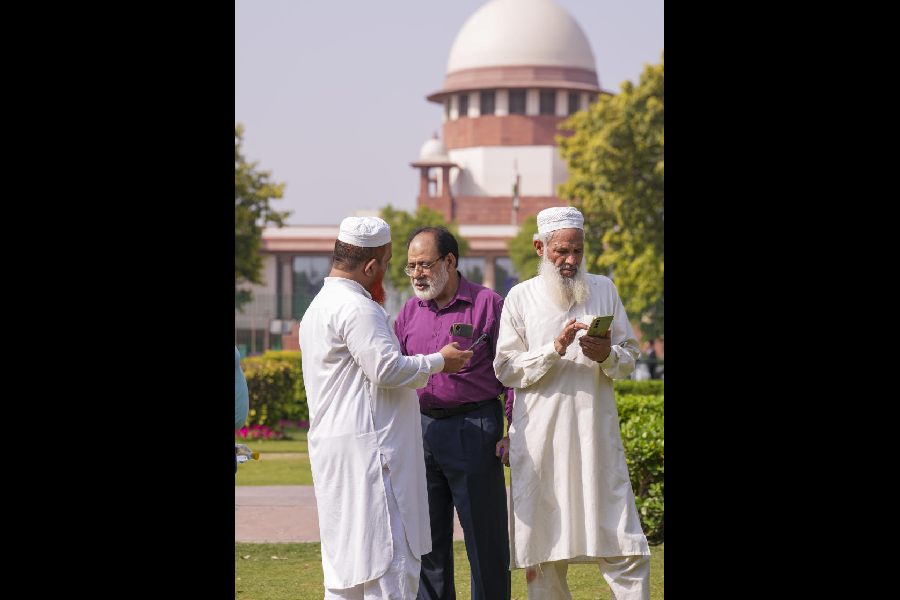The Centre on Thursday gave the Supreme Court an undertaking not to appoint any non-Muslim to the central waqf council or the state waqf boards till the next hearing in May.
It also undertook not to change till the next hearing the character of the existing waqf ownerships — that is, neither the collectors nor the government would de-notify the existing waqf users, irrespective of the period of their occupation of the property.
These assurances came a day after the top court expressed an inclination to stay these provisions in the recently passed Waqf Amendment Act.
These two provisions have been the main triggers for the protests against the new waqf law, which have spilled over into communal violence in Murshidabad.
In response to a query from the court, the Centre also said that if any state government acted contrary to the assurance, such action would be treated as “void”.
The bench of Chief Justice Sanjiv Khanna, Justice Sanjay Kumar and Justice K.V. Viswanathan recorded the undertakings from solicitor-general Tushar Mehta, representing the Union government. Mehta gave these assurances after strongly opposing any stay on the new waqf law.
Mehta argued that the court cannot stay a piece of legislation after a “prima facie” reading of it.
Justice Khanna retorted that when the matter was in court, the executive too was expected not to change the character of the existing waqf properties.
The bench posted the next hearing to May 5 to enable the Centre to file a short response to the batch of petitions and cross-petitions for and against the amendment.
It said it would treat 5 of the 120-odd petitions as the main writ petitions, and the rest as intervention or impleadment applications.
The court order said the central and state governments and the waqf boards may file preliminary replies to these writ petitions within seven days and that “rejoinder affidavit(s), if any, may be filed within five days after service of the preliminary reply/ response”.
“We clarify that the hearing fixed on the next date will be a preliminary hearing and, if required, interim orders will be passed,” it said.
During the brief hearing in a packed court hall, the Centre had said it had to come out with the amendment keeping in mind the “lakhs of representations” received from across the country.
Mehta argued that several villages, private properties and government land were being claimed as waqf properties — those dedicated to religious or charitable purposes.
Justice Khanna said the court would normally not stay a legislation (without an in-depth consideration) but the new waqf law had both infirmities and positives.
“Yesterday, we pointed out certain infirmities. We also said there are some positive things in the legislation. But we also don’t want the situation prevailing today to change so drastically that it affects the rights of the parties before us,” he said.
“There is a thumb rule that courts won’t stay a legislation in ordinary course. But you are also aware there is another thumb rule that when a petition is pending before the court, the situation which is prevailing should not change, so that the rights of the persons are not affected.”











